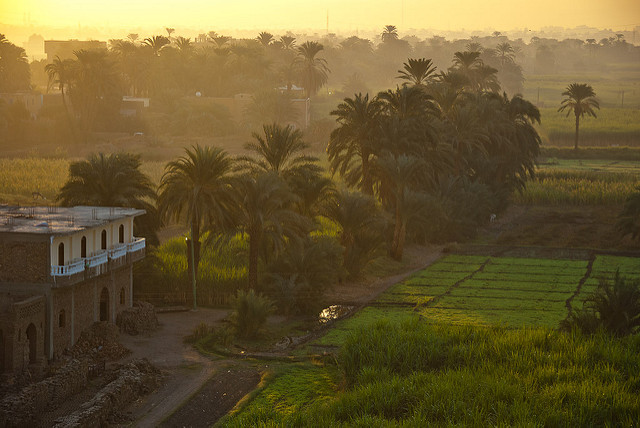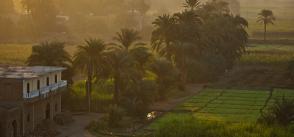
From Egypt to Palestine, agroecology as a weapon
COP22 from rhetoric to action.
Climate change increasingly threatens agricultural systems worldwide. A situation particularly relevant in Egypt and Palestine. The contexts are different, Egypt has faced food riots which played a part in launching the 2011 revolution, and Palestine, smothered by the Israeli occupation, faces many difficulties in attempting to provide for its population. Yet in both cases, agroecology can serve as a solution.
“We want bread, freedom and justice.” For months, Egyptians chanted this slogan on Tahrir Square in Cairo and beyond. Minya, capital of Middle-Egypt, is located 240 kilometres south of the city, in the centre of the country on the West Bank of the Nile. In the past, the region numbered 452,000 acres of agricultural land used to represent about 6.5 % of cultivated land in Egypt: cotton, wheat, corn, potatoes, and sugar cane were the main crops. Today, agricultural lands have disappeared. Minya has transformed into a concrete, modern, fashionable city. Many impoverished farmers have changed professions, as their incomes were no longer sufficient to provide for their family.
Moussa [his name is not published to protect his identity] is 56. The farmer has worked in the agricultural sector since childhood with his father. He is currently renting 8.093 square metres of land to grow vegetables:
I hope I will have access to fertiliser to increase production.
I buy supplies with colleagues to save money, and we sell our production together to reach the highest price. This makes us stronger together, to resist high prices and the weakening Egyptian pound.
Read the full reportage by Ahmed Sawan via OrientXXI.
[Photo by schmaeche | Flickr]







